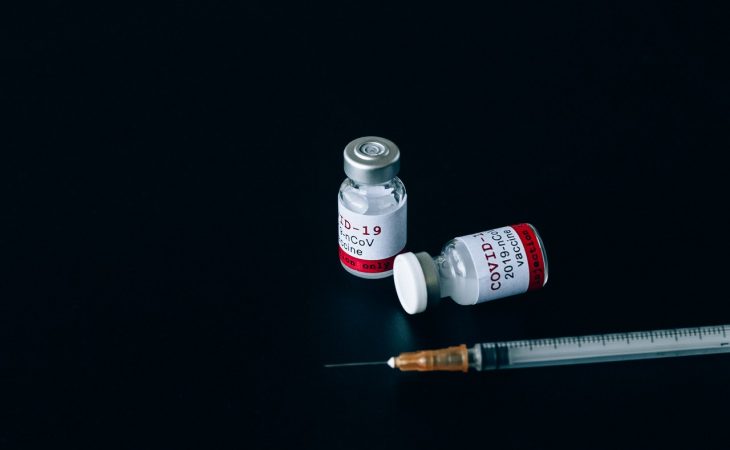The Cleveland Clinic in Ohio recently found that those who have had COVID-19 before may not be able to benefit from vaccination.
Research shows that almost 0 cases of SARS/CoV-2 infection were found in a large group of healthcare workers who were either previously infected and unvaccinated or who had previously been infected and were vaccinated.
However, there was a steady rise in cases among people who weren’t vaccinated and had not previously been exposed to SARS-CoV-2.
The researchers believe that natural infection confers immunity similar to vaccination. People who have not had COVID-19 may be given priority for vaccination.
Experts believe that further research is required to determine the duration of immunity after a COVID-19 case. Some infectious disease specialists recommend that patients who have had COVID-19 continue to receive one dose.

The study included 52,238 people. 1.359 of the 2,579 individuals who had COVID-19 before were included in the study.
The remaining 49,659 people had never been vaccinated with COVID-19. 22,777 were also vaccinated.
These individuals were followed from December 2020 to May 20,21. During this time, none of the 2,579 COVID-19-positive people (including the 1,359 unvaccinated) had contracted the virus.
The findings show that vaccination significantly lowers the risk for SARS-CoV-2 in people who have not had COVID-19 but not necessarily in people who have had it.
These individuals had similar immunity to fully vaccinated people.
The limited availability of vaccines in some countries has led to growing concern that vaccines should be given priority to those who have not had COVID-19.
“I would likely keep those doses to protect the un-immune, people who haven’t had the previous infection. Then, we will go back and decide whether [previously ill persons] need to be immunized,” Dr. Monica Gandhi, an infectious disease specialist at the University of California San Francisco.
What we know about immunity
Preliminary data suggest that natural infections are long-lasting, lasting for at least 8 months. It is possible to live longer.
There is also evidence that shows low rates of reinfection in people with COVID-19.
A study in Israel found that reinfection rates were as high among people who had been fully vaccinated as they were in those who weren’t.
“[The Cleveland Clinic study] confirms what we’re seeing clinically, that is, the reinfection rate for previously infected persons is extremely low and generally follows a less severe clinical course than initial COVID-19,” Dr. Spencer Kroll from Marlboro, New Jersey, an internal medicine specialist.
Our immune system is strong and includes many components that work together to prevent illness.
Our immune systems create antibodies when we are exposed to pathogens. According to Dr. Amesh Adalja (a senior scholar at Johns Hopkins University Center for Health Security, Maryland), antibodies can decrease over time, but they are still active at lower levels. Adalja is an infectious disease expert and senior scholar.
The cell-mediated immune response is also known as the cell-mediated immune reaction. This involves protective B cells or T cells that increase over time and remain elevated even after infection.
Kroll states that different immune responses can be developed to infections.
Kroll stated that some people with a documented infection don’t produce antibodies.
Who should be vaccinated
Adalja stated that vaccination policies should be influenced by natural immunity.
Adalja stated that natural immunity isn’t trivial and contributes to population immunity.
Scientists continue to explore whether vaccination of people with the disease is beneficial. They are also studying how natural immunity compares with immunity from vaccination.
Gandhi stated that she is often asked if people who have been previously ill should be vaccinated. She stated that there aren’t enough data and that we don’t know how long natural immunity will last.
The solution? Just take the first dose. Even though it isn’t necessary, a single dose can boost your immune system.
Gandhi explained, “I recommend one dose after natural infections, not because I have any evidence,” but because of emotions.
One study showed that people who had been previously sick and received one dose of vaccine had stronger antibodies than those who had not had the infection but had received both vaccine doses.
Another study concluded that one dose of the drug in an already sick person produced an immune response comparable to those who received both doses but didn’t have a prior infection.
Adalja also supports the one-dose strategy. He said that a single dose of the two-dose vaccine regimen might be sufficient for someone who has had a prior infection.
Adalja says it is difficult to tell if someone has natural immunity. Antibody levels decrease over time and T cells can be cumbersome to measure.
There have been no reported dangers to those who have had COVID-19 but still received the vaccination.
Gandhi says that although they may experience more side effects, such as fatigue and pain at the injection site, there is no danger in getting vaccinated following natural infection.
We need to do more research to determine the duration and persistence of immunity following infection.
Kroll stated that there are also different effects of the infection in women, children, and the elderly. Therefore, it is important to determine the duration and strength of immunity as they may vary between these groups.




